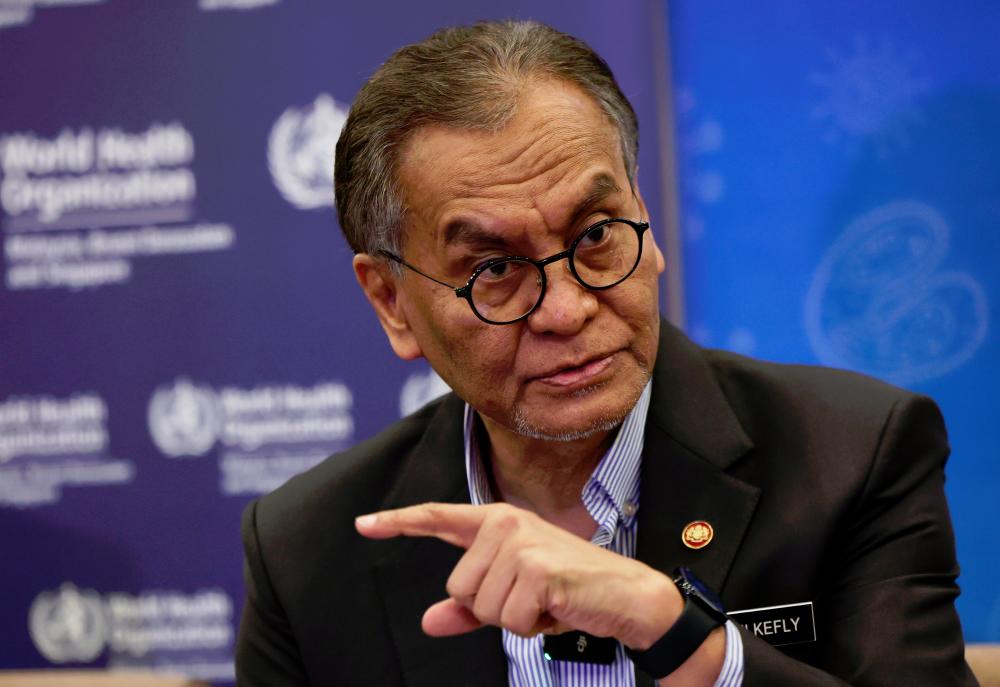PUTRAJAYA: Health Minister Datuk Seri Dr Dzulkefly Ahmad said his ministry is set to award additional pharmaceutical procurement contracts early next year to ensure a steady supply of medication in the country, particularly human insulin.
He said this measure follows the supply disruption of human insulin last August, which prompted the ministry to take immediate action to ensure patients had access to the medication.
“We already have a few companies in the pipeline and are at the tail end of awarding them the license. These are familiar companies you already know, and they are committed to investing in developing human insulin,” he told the media after launching the celebration of World Antimicrobial Awareness Week (WAAW) 2024.
Dzulkefly also gave assurances that Malaysia has never experienced a complete shortage of human insulin, even during the August disruption.
Earlier today, the minister told the Dewan Rakyat that the ministry would no longer award pharmaceutical procurement contracts to just one company, in order to ensure a secure and stable supply of medication in the country.
“The experience in August provided a lot of important lessons to us, especially when there is a shortage of human insulin.
“Although there isn’t any case where it’s proven that patients went home without supply, this situation requires swift measures to ensure supply remains adequate. Initial steps include transferring supplies between nearby clinics.
“For example, if clinic A runs out, it can get stocks from clinics B, C, or D. This approach ensures a continuity of supply to patients without interruption. The ability to act fast ensures there is no big impact on patient care,” he said.
Dzulkefly added that the experience was a warning on the risk of depending on only one source.
“In this situation, the only supplier, Biocon, faced failures in supplying insulin. The situation nearly caused a supply crisis, which requires immediate measures to look for alternative sources.
“As a step forward, a more sustainable approach would be to ensure a diversified supply of important medicines, such as human insulin. This means contracts or tenders won’t be given to only one supplier.
“With this measure, we hope to avoid a similar situation and to ensure people’s health is maintained without the risk of lack of supply,” he said.
Dzulkefly had highlighted other initiatives under the ministry’s shift from ‘sick-care’ to ‘health-care” earlier in November, and announced an allocation of RM87.1 million under Budget 2025 for the purchase of sodium-glucose transport protein 2 (SGLT2) inhibitors, benefiting 280,231 diabetic patients.
“This medication is highly effective, reducing complications such as cardiovascular and kidney issues, which can be costly to treat. It also supports weight loss, a critical factor in managing diabetes. By preserving kidney function and reducing the risk of end-stage renal failure, we are prioritising long-term patient outcomes,” he said.
Dzulkefly also emphasised the ministry’s commitment to exploring analogues and other advanced therapeutic options to enhance diabetes treatment while maintaining cost efficiency.
“These efforts reflect our dedication to strengthening the sustainability and effectiveness of the national health system, ensuring access to essential medications while reducing the burden of chronic illnesses,” he said.









